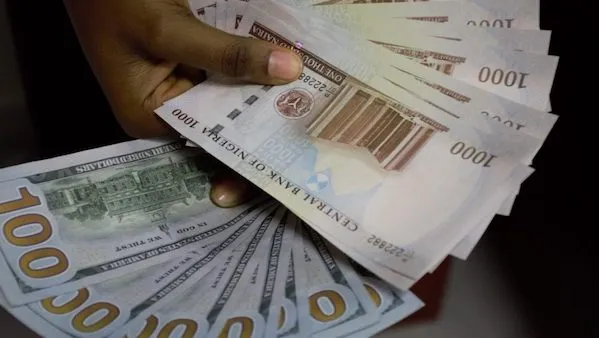- Lar says Nigeria economy is mainly dependent on importation
- Lar groans over cost of doing business in Nigeria
A member of the House of Representatives, Beni Lar, representing Langtang North/Lantang South Federal Constituency of Plateau State in a motion on the floor of the House on Wednesday, said N1000 might exchange to a dollar if nothing was done to stabilise the exchange rate.
Lar said this while moving a motion on the floor of the House, titled, “Need to stabilise Nigeria’s foreign exchange rate”, but the House rejected his motion.
Lar noted that, “In July 1980, the exchange rate was $1 to 0.80Kobo, in July 2022, the rate was $1 to 670 naira, while in July 2023, the exchange rate is now $1 to 815 naira, shortly after the new administration had promised during the campaigns and upon inauguration to stabilise Nigeria’s exchange rate at N200 to $1.
“In the 1980s, most of the food and products consumed were grown or produced in Nigeria. Today, the Nigerian economy is mainly dependent on importation and there lies the source of the terrible exchange rate we are now experiencing.
“The importation of vehicles and other commodities has dropped, since the floating of the naira by the single exchange rate.
“The impact of the unified exchange rates has made Nigerian students abroad suffer tuition fees increase by over 60 per cent, making the money in their bank accounts insufficient to pay school fees due to devaluation of the naira.”
She also added that, “The naira has been on a rapid decline against the US dollar, euro and pounds sterling, thus leading to hike in the prices of goods and services. This has worsened the inflationary situation and the cost of doing business in Nigeria.
“The high prices of goods and services are taking a huge toll on the average Nigerian, making life unbearable.
“If this is not reversed, $1 could be exchanged for 1,000 naira by December 2023 and the current economic situation may trigger an inflationary spiral that may throw Nigeria into economic recession and depression”.
However, in his contribution to the motion, Lawan Ali representing Bursari/Geidam/Yunusari Federal Constituency, Yobe State countered, saying, “I have never heard of the President promising to make the dollar equal to N200. The President took the bull by the horns to remove the subsidy. We must commend his efforts and not by way of challenge. We need to support him.
“We should be fair to this current government. It’s too early to judge the performance of the government with regard to the dollar. This government inherited insecurity. If people are not encouraged to come and invest, there is no way it (the economy) will grow. We should give this government time before assessing it”.
Also speaking, Leke Abejide representing Yagba Federal Constituency, Kogi State said, “This exchange rate cannot be done by fiat but by market forces. It has to be done by production and not importation. I believe the government is in the right direction”.
Similarly, the Minority Leader of the House, Kingsley Chinda, reminded the lawmakers that the prayer of the motion was not an attack on the President Bola Tinubu government.
“I would like to remind us of our duty, which is to make laws for the prosperity of the country. Look at the prayers! Are we saying we should not urge the government? The prayer is a support to the government. It is in tandem. We should support the motion. We should not be partisan. We need the government to better our policies”, he said.
